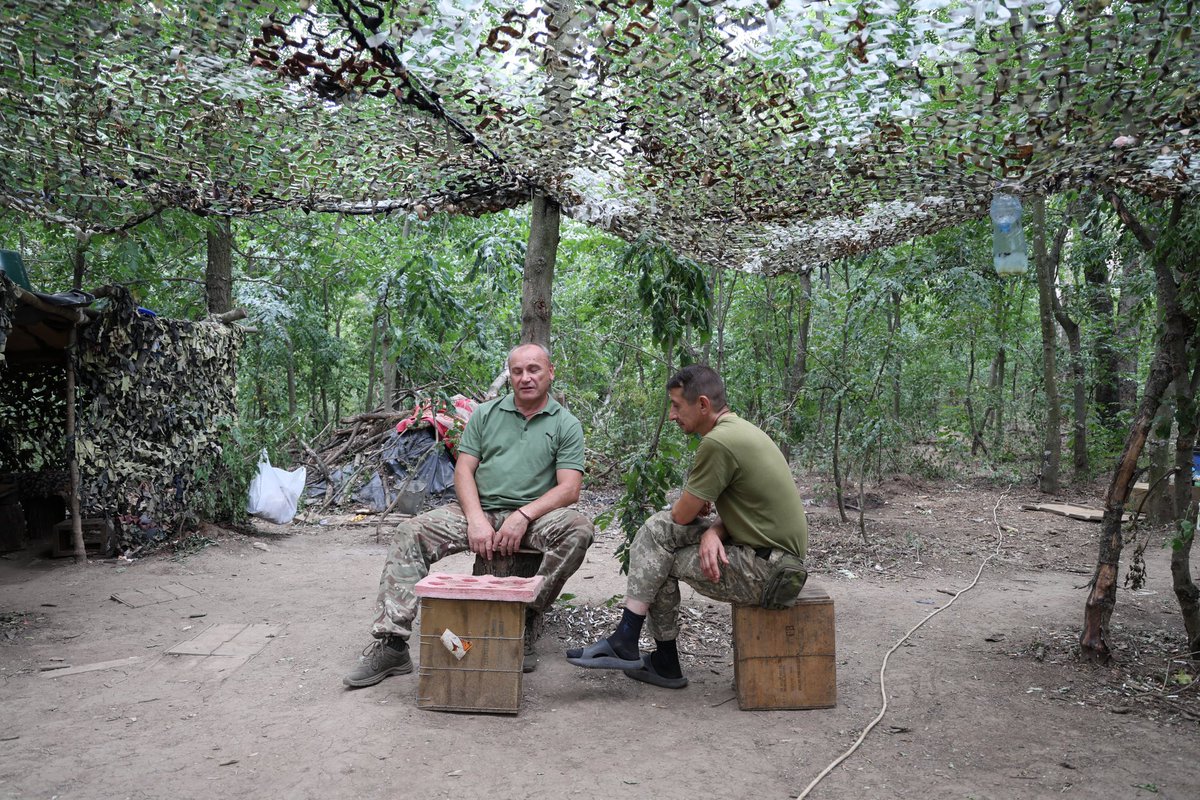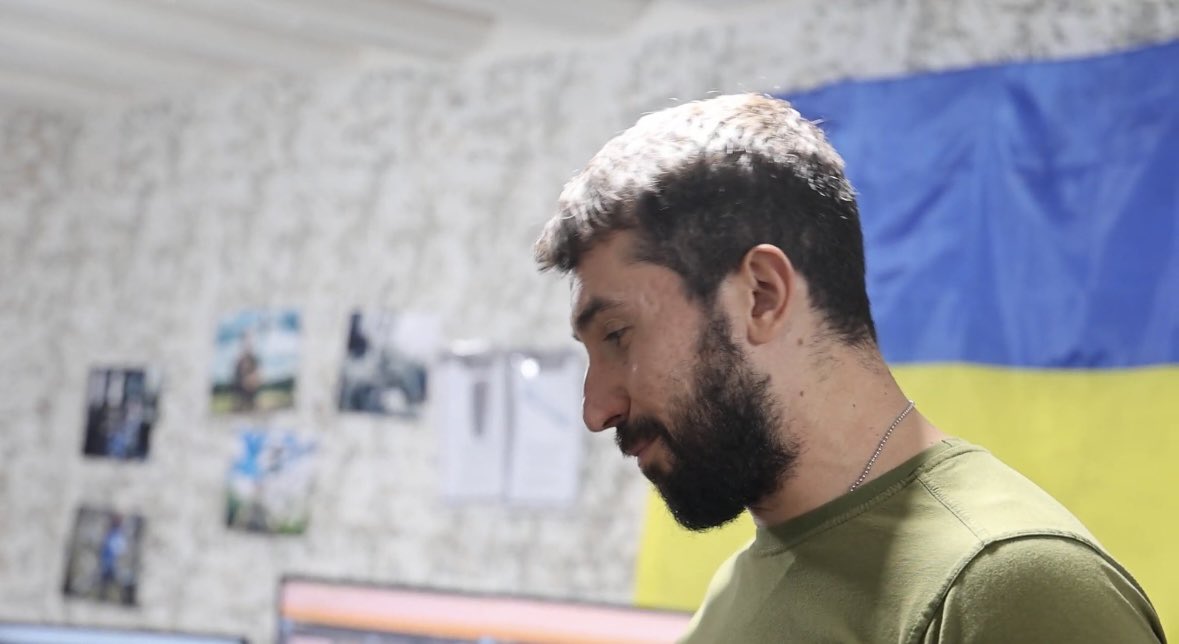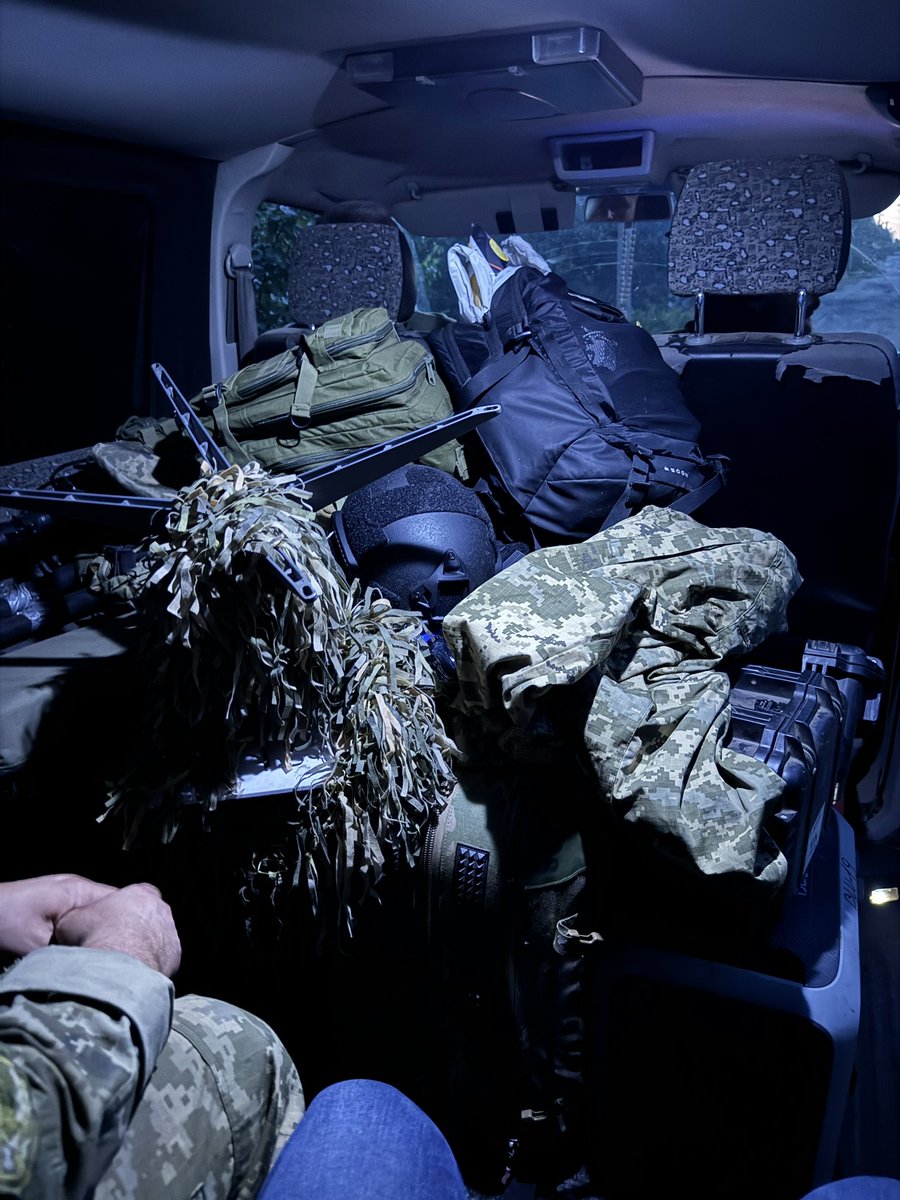I visited Colombian soldiers from the 98th Territorial Defense Battalion Azov-Dnipro fighting on the Zaporizhzhia front. Here is what I learned about the Colombian soldiers fighting for Ukraine.
“‘Libertad o Muerte’ – Liberty or Death for Ukraine’s Colombian Volunteers”
🧵 1/
“‘Libertad o Muerte’ – Liberty or Death for Ukraine’s Colombian Volunteers”
🧵 1/

In the flatlands of Zaporizhzhia Oblast, soldiers from the 98th Territorial Defense Battalion Azov-Dnipro are training to storm Russian trenches. Shouts in Spanish mark them out as unusual: among their number are Colombians who have traveled to Ukraine to join the fight.
2/
2/

The unit is a mix of experienced soldiers from the start of the full-scale invasion, fresh Ukrainian recruits, and around 20 Colombians. As they practice, it’s clear which soldiers are still motivated to fight.
3/
3/

The unit has suffered significant losses over the past year and has increasingly relied on the influx of Colombian fighters, according to Dima, the company commander.
4/
4/
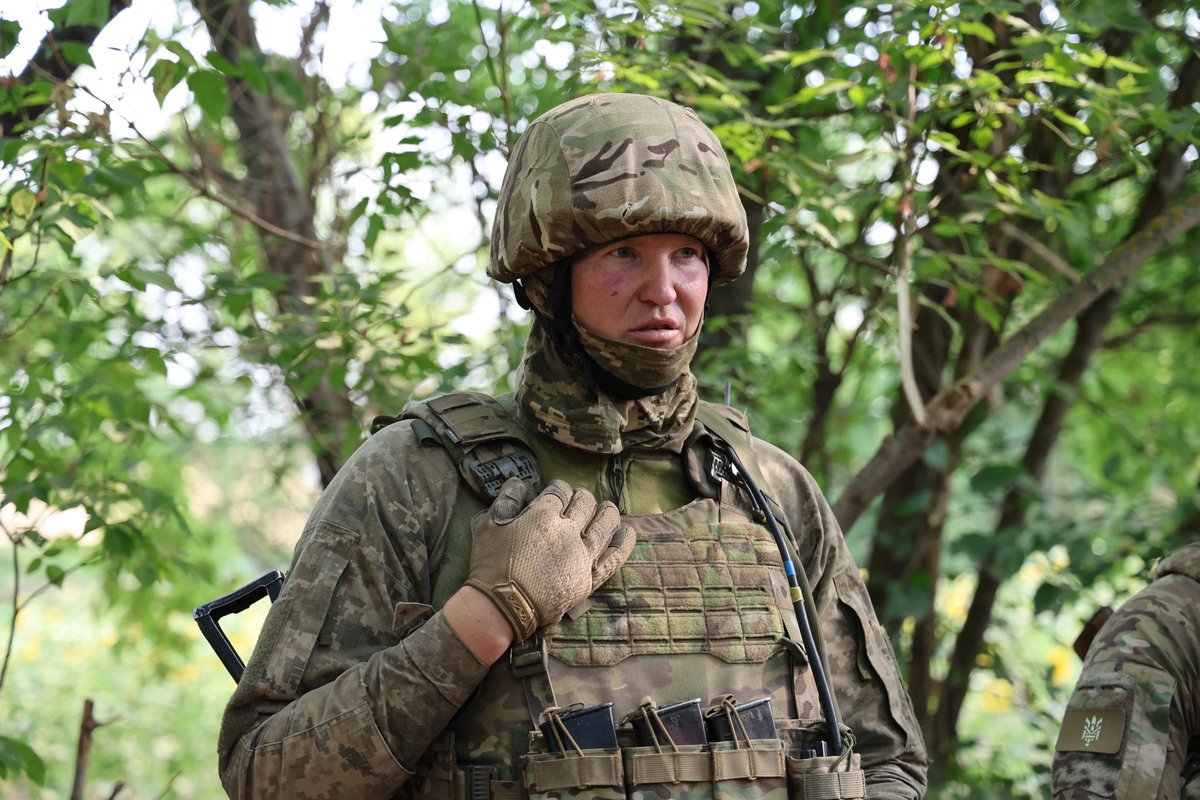
Communication between the soldiers is one of the greatest challenges, he says, emphasizing the importance of constant contact on the battlefield to stay alive, even if it means shouting to ensure coordination.
5/
5/

“We’ve picked up some basic Spanish, and they’ve learned a bit of Ukrainian. We also use hand gestures, and when needed, we rely on a phone translator,” he says. The unit also has one soldier who knows both Spanish and Ukrainian, who is constantly running back and forth to translate where needed.
6/
6/
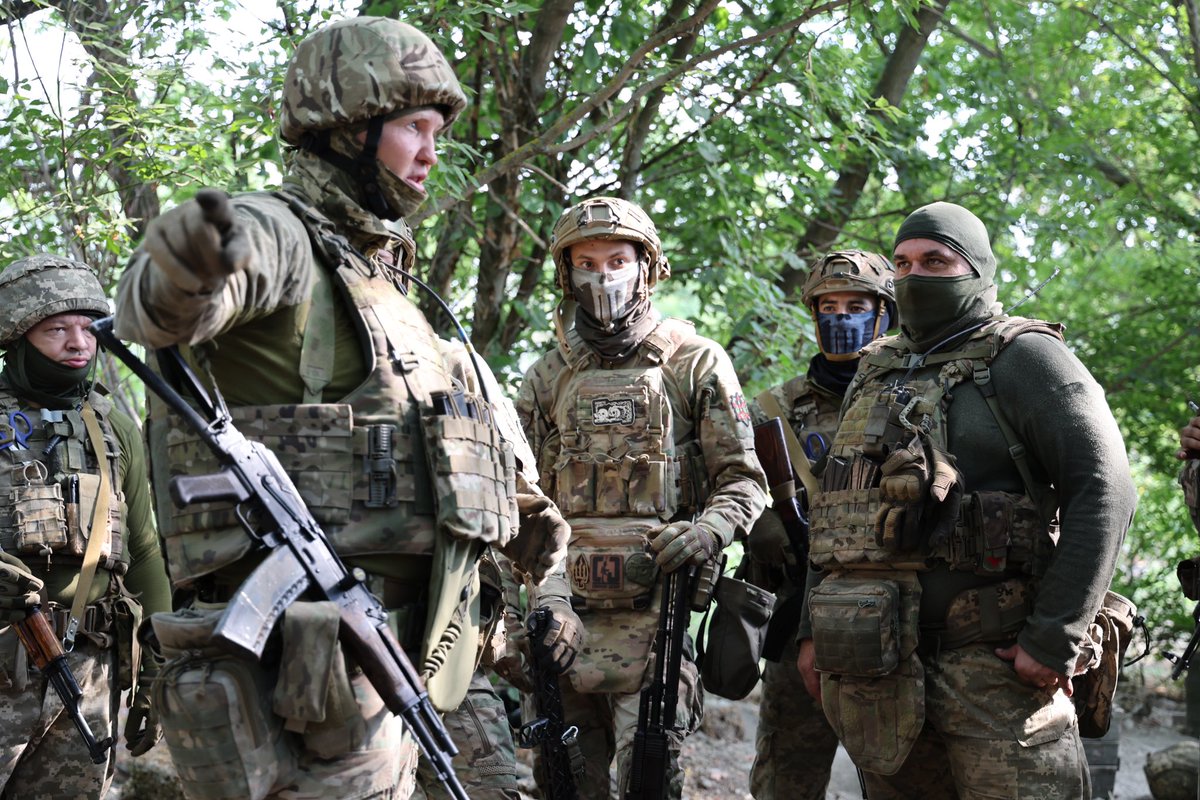
The South Americans typically sign six-month contracts. “Everyone wants to earn good money and have minimum risk, but this is war,” Dima says. The unit has lost Colombians and even one Portuguese soldier, he says.
7/
7/

“Some of them are incredibly hardworking and take military service seriously, while others are less committed,” he says. There have been instances where, after facing intense combat, some Colombians decided to leave.
8/
8/

Lufan, known by the callsign “Cobra,” says he was a soldier in Colombia and wanted to pursue his profession elsewhere. He traveled to Ukraine because he wanted to fight for Ukraine’s freedom and for the good income being offered.
9/
9/

While Ukrainian soldiers have to sign up for three years, the Colombians can do so for six months, at much higher wages of $3,000-$4,000 a month.
Lufan says he came to Ukraine on the recommendation of a friend who was already fighting there, but, by the time he arrived in Ukraine in December 2023, his friend had been killed in battle.
10/
Lufan says he came to Ukraine on the recommendation of a friend who was already fighting there, but, by the time he arrived in Ukraine in December 2023, his friend had been killed in battle.
10/

Lufan joined several assault missions when he first joined the unit, and described the battles as extremely intense. “Russian kamikaze drones do a lot of damage to soldiers storming the trenches,” he says.
After losing another close friend in battle, he requested a transfer to trench support duties instead of direct assaults.
11/
After losing another close friend in battle, he requested a transfer to trench support duties instead of direct assaults.
11/

“I still don’t have a clear idea of when I will retire or return to my country. For now, I will continue supporting the beautiful cause of Ukraine,” he says. He adds that he has heard from home that the cartels in Colombia have already taken lessons from the war in Ukraine, and are using First Person View (FPV) drones to strike at the army and police.
12/
12/

Robinson, known as Maverick, also came to Ukraine through a mutual friend who was already involved in fighting the Russians. Arriving in June 2023 from Colombia, he says his motivation was ideological.
13/
13/

“The main reason I made the decision to come to Ukraine was to support and help a nation that is being oppressed and indiscriminately attacked,” he says. “Russia has been mercilessly attacking civilians, children, the elderly and families without considering any consequences—targeting people who had no way to defend themselves.”
14/
14/
He estimates there are more than 2,000 of his fellow countrymen currently fighting in Ukraine, and says around 80 Colombian soldiers have already been killed in combat while others have been wounded.
He also expressed his concern that two Colombian soldiers returning home were detained in Venezuela and sent to Russia, where they have been charged with mercenary activities.
15/
He also expressed his concern that two Colombian soldiers returning home were detained in Venezuela and sent to Russia, where they have been charged with mercenary activities.
15/

“I want to make it clear that we are not mercenaries,” he says. “We are directly incorporated with the Ministry of Defense of Ukraine. We are volunteer soldiers serving the Ministry of Defense of Ukraine, and we are not fighting through private companies or private armies.”
16/
16/

At the training ground, the Colombian soldiers continue storming the trenches while yelling in a mixture of Spanish and Ukrainian. They are upbeat and in a jovial mood, singing Spanish songs and joking with one another, in contrast to some of the exhausted Ukrainian soldiers who have been fighting since the full-scale invasion.
17/
17/
“The Colombians already have experience as soldiers in their home country, but what’s new for them are the grad rockets, glide bombs and drones,” says an infantryman known by his callsign of Klim. “They’ve fought against cartels before, but now they face a different kind of warfare.”
In the last month, the majority of casualties have been caused by kamikaze drones and FPV drones dropping explosives on infantry positions, including on the Colombian soldiers, he says.
18/
In the last month, the majority of casualties have been caused by kamikaze drones and FPV drones dropping explosives on infantry positions, including on the Colombian soldiers, he says.
18/

After completing their trench-storming drills, the soldiers move on to the firing range for further training. Shortly after they begin, Russian drones are spotted overhead, forcing an immediate evacuation.
19/
19/
Commander Dima says that their training grounds have been repeatedly targeted — first burned, then bombed by Russian forces. The constant threat of drones searching for targets makes the area extremely dangerous.
20/
20/

“I still don’t have a clear idea of how long I plan to stay in Ukraine,” Maverick says. “I feel comfortable helping this country, supporting its people, although I won’t deny that I miss my homeland and my family.”
21/
21/

• • •
Missing some Tweet in this thread? You can try to
force a refresh






